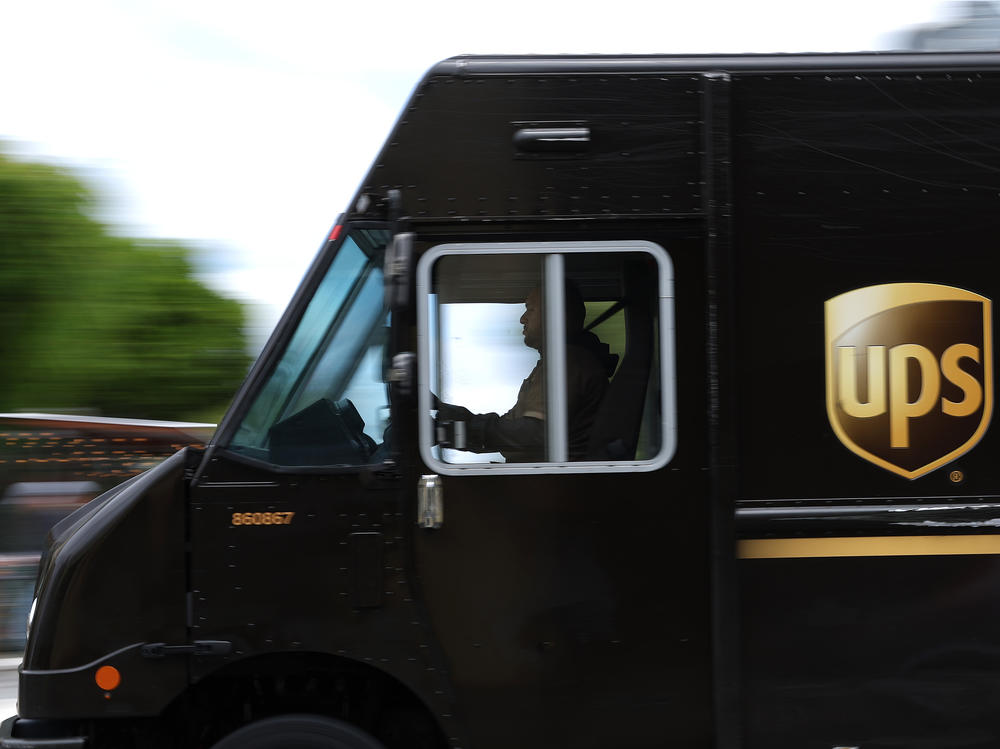Section Branding
Header Content
UPS union calls off strike threat after securing pay raises for workers
Primary Content
The Teamsters union said it has secured pay raises for United Parcel Service workers, averting what would have been one of the largest strikes in U.S. history.
"UPS has put $30 billion in new money on the table as a direct result of these negotiations," Teamsters general president Sean O'Brien said in a statement. "This contract sets a new standard in the labor movement and raises the bar for all workers."
Under the tentative five-year agreement, existing full and part-time UPS Teamsters will earn $2.75 more per hour in 2023, and $7.50 more per hour over the length of the contract. Wages for existing part-timers will also be raised to no less than $21 per hour, effective immediately, according to a Teamsters statement.
New part-time hires at UPS will start at $21 per hour and advance to $23 per hour.
The current five-year collective bargaining agreement expires July 31. It is the largest private-sector contract in North America, covering roughly 340,000 UPS workers. Local Teamsters chapters had been holding practice pickets in recent weeks in preparation for a strike if the company and the union failed to negotiate a new contract by the end of the month.
Union members from across the country still need to ratify the new contract in August.
The two sides were at odds over pay for part-time workers
Contract negotiations stalled in early July over wages for part-time workers, who make up more than half of the unionized workforce at UPS. The union initially rejected UPS' economic proposal, arguing the company can afford to increase pay for its part-time employees.
UPS posted a record profit last year, as the company reached $100 billion in revenue in 2022 for the first time.
"Together we reached a win-win-win agreement on the issues that are important to Teamsters leadership, our employees and to UPS and our customers," said UPS CEO Carol Tomé in a statement on Tuesday. "This agreement continues to reward UPS's full- and part-time employees with industry-leading pay and benefits while retaining the flexibility we need to stay competitive, serve our customers and keep our business strong."
The union had already won workplace safety concessions
Last year, the median UPS employee made $52,000, according to the company's securities filings. Tomé earned 364 times that amount, with her salary approaching $19 million.
According to the company, part-time union employees currently make an average of $20 per hour after 30 days on the job. But the union disputes these claims.
The contract talks, which began in April, had previously yielded significant wins for the union on issues related to wages and workplace safety. UPS agreed to equip new delivery vehicles with air conditioning, end forced overtime and eliminate a two-tier pay system for delivery drivers, among other concessions.
But wages and benefits for part-time workers remained an unresolved sticking point for weeks, until just days before a possible strike.
The last nationwide walkout at UPS, in 1997, lasted 15 days and cost the company $850 million. A strike this year would have disrupted package deliveries for millions of customers across the U.S. It could have cost the U.S. economy more than $7 billion, according to economic estimates.
UPS' main competitors – including FedEx, Amazon and the United States Postal Service – would not have been able to take on all the volume left behind during a UPS strike. UPS delivered an average of 24.3 million packages per day in 2022.
Earlier in July, UPS started to train its management employees to step in during the strike – a move that a Teamsters spokesperson called an "insult" to unionized workers.
The threat of a UPS strike came as thousands of workers across sectors, from Hollywood to the hospitality industry, have walked off the job in recent weeks over wages and work conditions.
Copyright 2023 NPR. To see more, visit https://www.npr.org.

